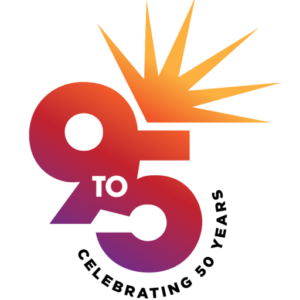Marilyn Lee
Atlanta, GA
My name is Marilyn Lee and I’m a formerly incarcerated woman who had dependent children when I was sent away to prison. Later, I also cared for my sister’s children when she went away to jail. Both experiences showed me how caregiving responsibilities that often fall on women lead to pay inequity.
People tend to forget the plight of family members who take on the responsibility of caring for the children of parents who are absent as a result of incarceration. My mother was the caregiver for my children when I was sent to prison. My mother was a nurse, so she worked everyday, and cared for my three children. When they became ill, had fevers, and dealt with all the other things kids go through, she would have to call into work sick. She had to fabricate a personal illness or otherwise lose a day’s pay. Lying went against her morals and caused her unnecessary stress.
On the flipside, the experience of caring for my sister’s children for nine months compelled me to gain a brand new respect for my mom and all those who take on the task of full time caregiving to children whose parents are unable to. As a caregiver to my sister’s children, I spent many days at clinics, and late night emergency room visits lasting up to 8 or more hours. Arriving home at dawn, I could not have possibly made it into work, and taking a sick day was my only option if I wanted to be paid. At that particular juncture of my life, I was relatively new on the job I was blessed to get. The job offered 5 sick days a year, and accumulated annual hours each biweekly pay period. I had been on the job barely six months when my sister was incarcerated. There were several times in the course of the nine months while caring for my nieces and nephews where I was forced to forgo pay, I had to be there for her children, plus my own children as well. I quickly exhausted my sick days and annual accrued time, which meant no work, and no pay for me.
I promise you these are not isolated incidents. In fact, 2.7 million children in this country have a parent in prison. 1 This is one of the many reason why, in addition to fighting for criminal justice reform, I support the Family And Medical Insurance Leave (FAMILY) Act, a federal bill that would establish paid family and medical leave insurance. This is a vehicle by which we can begin to alleviate one small portion of the added stress of caring for loved ones — and it’s a crucial step towards achieving equal pay, since women do the vast majority of caregiving. When our employers won’t pay us for time to care for our loved ones, the result of not receiving pay for one day could be the difference in feeding your family for a few days.
—————————————–
This blog post is part of 9to5’s collection Faces of the Wage Gap, illuminating the many factors which contribute to income inequality and the necessary solutions needed to reach true economic justice for all women. Please share via social media!
1. “FAQs About Children of Prisoners” Prison Fellowship. https://www.prisonfellowship.org/resources/training-resources/family/ministry-basics/faqs-about-children-of-prisoners/

